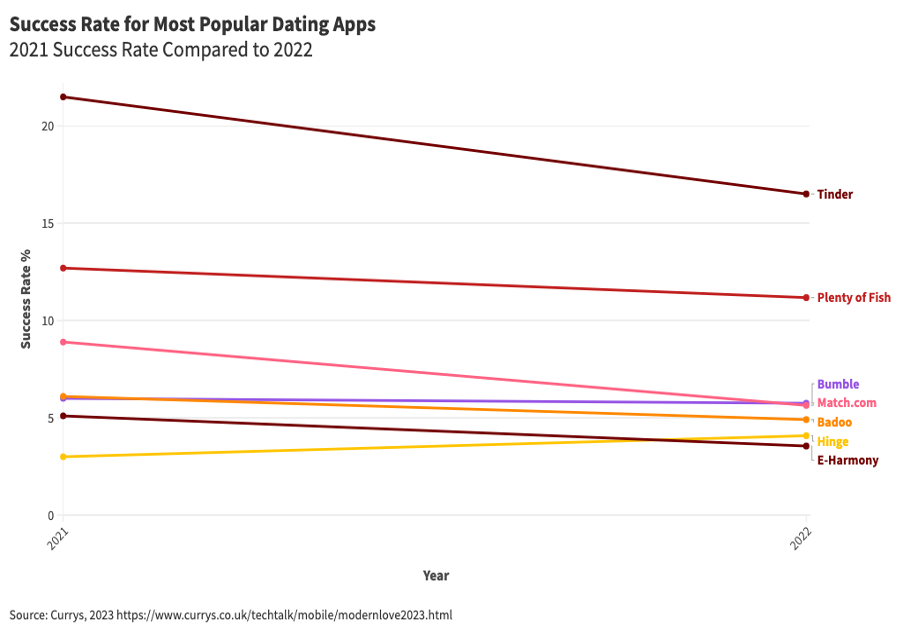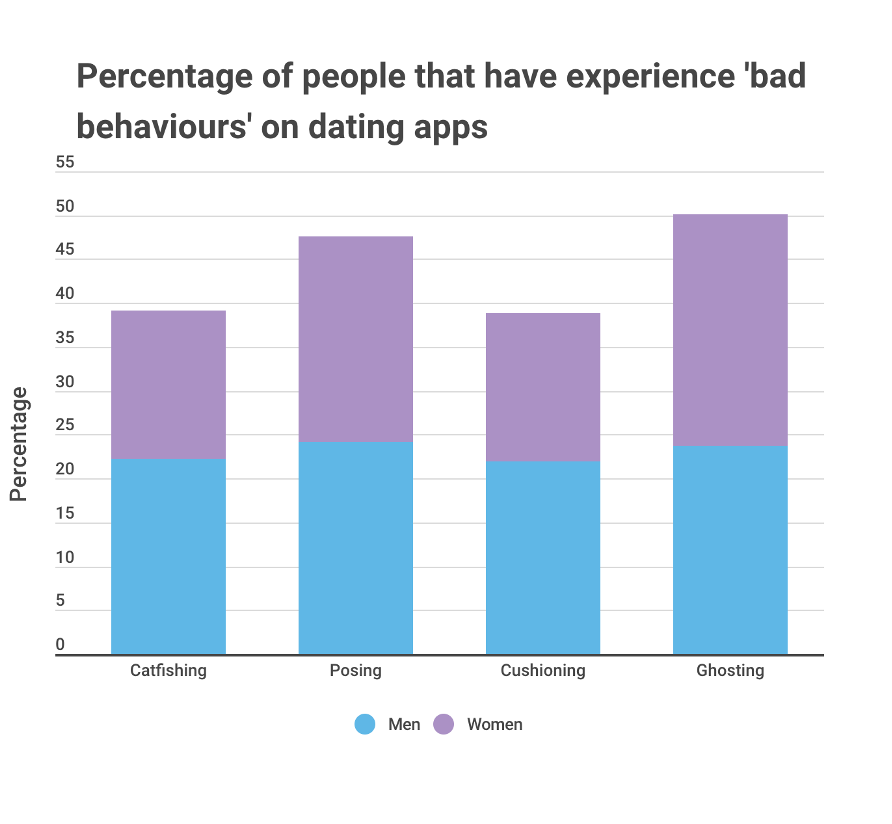The Perfect 'Pear': Singletons Encouraged to Ditch Dead Dating Apps for World's Biggest Social Experiment
New accessory set to revolutionise dating as data shows we are falling out of love with matchmaking apps
As we get increasingly fed up with hopelessly swiping left and right, a new social experiment is set to revolutionise the world of modern dating by bringing us back to reality and away from our screens.
According to Curry’s, our love affair with dating apps is beginning to fizzle out, as fewer people report success stories and blissful fairy-tale endings. In fact, 37.95% of men and 26.93% of women state that they would never recommend that people use dating apps, and many hold online matchmaking platforms responsible for making their love or sex life more dysfunctional.
Although app stores rankings haven’t shifted too drastically, 14 out of the 15 of top dating apps experienced a decrease in their success rate for finding love in 2022, compared with 2021. The only app to experience an increase was Hinge, but all-in-all none of the apps success rates are as impressive as you may think.
The drop in success could down to people craving more natural, in-person interactions in a post-pandemic world. It could be because of the bad behaviours that have simply become common place on dating apps. Or the fall in the number of happy endings could be due to the increasing subscription prices that apps are beginning to charge. Either way, Pear rings have arrived as our saving grace and a way to remedy the faults of digital dating.
These innovative and cutting-edge pieces of technology are transforming the way that people meet, connect and full in love. But why are they needed? Curry’s research found that in 2022, 22.30% of men and 16.96% of women had fallen victim to catfishing. By which, they are lured into a relationship by a fictional persona. Similarly, 21.94% of men and 16.96% of women have experienced “cushioning” or “micro-creating” whereby the people they are messaging are actually in current, supposedly committed, relationships.
On the other side of the spectrum, 14.29% of men and 7.48% of women admitted being perpetrators of “posing”, meaning that have lured people in by pretending to be interested in a certain type of relationship.
Ultimately, these figures reflect the deceit that is normality in the world of online dating. There are no guarantees, people aren’t really aware of who they are talking to online and are frequently building connections or relationships under false pretences. But a small turquoise band, or the ‘Pair Ring’, is set to change dating for the better.
So, how do they work? The Pear dating rings remove the need for hopeless swiping longing for a perfect match who isn’t a catfish. Instead, the focus is on authentic connections and genuine interactions.
Users begin by setting up a profile which delves into hobbies, personality traits, values and beliefs. Once set up, user’s simply put the fashion accessory onto their fingers and go about their normal day-to-day life. When two users with matching profiles come into close proximity of each other, their rings emit a discreet and subtle vibration in order to encourage the alerted users to strike up a conversation in person.
According to Pear, “If 1.2 billion singles around the world wore a little green ring on their finger to show they’re single, we wouldn’t need dating apps. IRL connection is the mission.” The brand have even released a purple-coloured ring for those who identify themselves as being part of the LGBTQIA+ community.
The company have described the ring as “the opposite of an engagement ring” and promise that 100% of their profits will go towards growing the social experiment. The statement piece of jewellery itself costs a one of payment of £19.99 which entitles you to rings in three different sizes (so that you can wear it on any finger), and a membership code which grants you an invitation to “PearFest” and other exclusive events hosted by the company with the aim of bringing users closer together for a natural connection to form.
But is it worth it? Like any dating service enough people need to be involved for it to work. Luckily for Pear, the first two releases of the ring have completely sold out, and according to their website, singletons already have their hands on 94% of the stock for their third release. The brands Instagram account has also racked up 229,000 followers, suggesting that they aren’t short on customers who are invested in finding out whether this social experiment will really work.
This revolutionary scheme almost sounds too good to be true. Only time will tell as to whether this will be a lasting solution to the online dating conundrum, or whether it’s just a fad that will be over before we know it and leave us with a piece of jewellery collecting dust in our bed side drawer as only a distant memory of what could have been. Either way, Pear are really going out of their way to prove that it’s time to just get rid when it comes to dating app disappear.






